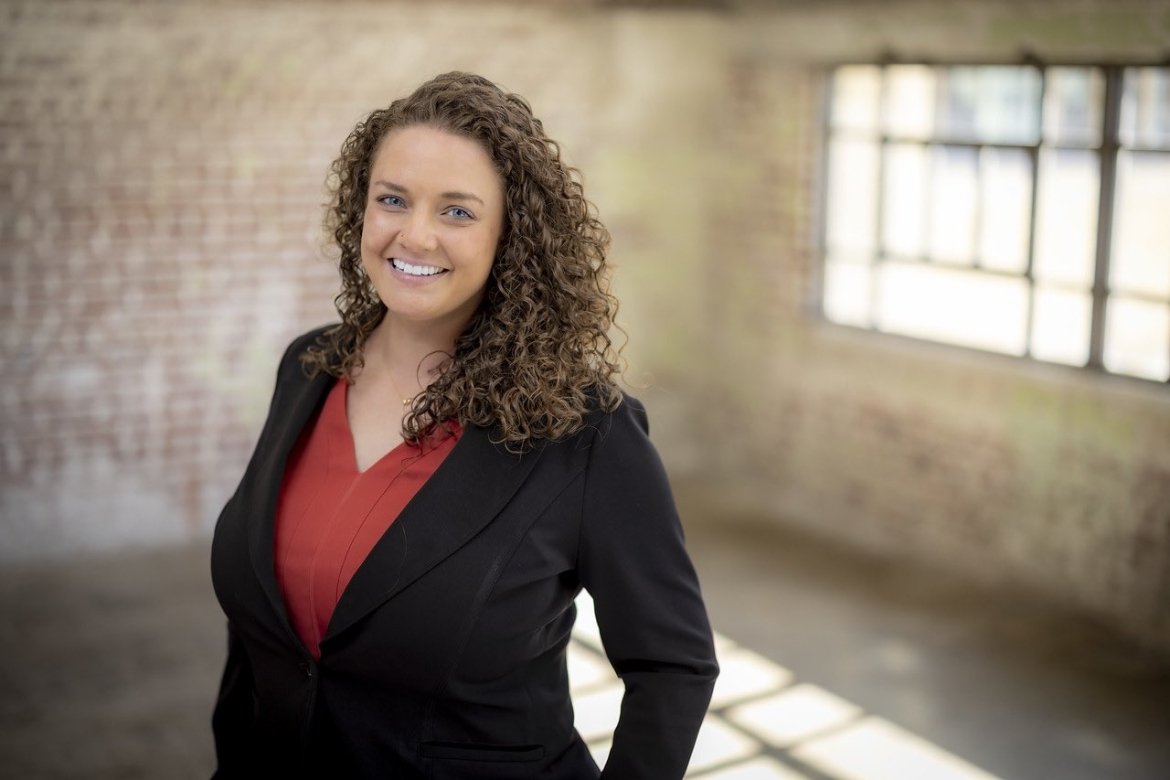Litigating the Status Quo

Mount Holyoke alum takes part in getting drag ban legislation overturned in Tennessee.
On June 2, 2023, the first weekend of Pride Month, Melissa Stewart FP’19 and her Donati Law colleagues were at a Pride event in Memphis, Tennessee, celebrating Pride and their last few weeks of grueling work. Months earlier, Stewart and her co-counsel filed a complaint and temporary restraining order (TRO) against the state of Tennessee in the wake of legislation that would ban drag performance and dress of any kind. The TRO was set to expire at midnight. As the minutes ticked by, the judge still hadn’t issued a ruling. They assumed the drag ban was being upheld and tried to enjoy their night. Then, an email came.
“My boss grabs my arm and shares the news that we got a final decision from the judge. We’re hunched over our phones, scrolling through this 70-page document, screaming and crying,” Stewart recalled. “Eventually, the DJ announces from the stage that the drag ban has been overturned and found unconstitutional. At that moment I thought, I’m pretty sure my career is all downhill from here, and I’m OK with that. To experience that ruling around a bunch of queer people was unforgettable.”
Tennessee was the first state to bring forth a drag ban of any kind. The bill wanted to outlaw “adult cabaret entertainment.” The law sought to punish first-time offenders with misdemeanors, while repeat offenders could receive felony charges and face jail time of up to six years. Elected officials argued that drag performances were “harmful” to minors.
Stewart, who studied English at Mount Holyoke before going to Duke University School of Law and becoming a civil rights attorney, saw the legislation that was taking shape and knew she wanted to be part of stopping it from being passed.
“I am queer, and aside from the obvious First Amendment issues in this case, the passage of these laws is personal and inhumane,” she said. “We knew we wanted to challenge these types of potential legislation.”
Stewart and her colleagues got to work, meeting with their client, reading through the bill and, finally, filing a complaint and requesting a TRO from the court just days before the drag ban was to take effect. The TRO would stop the bill from being enforced and give them time to build their case against it.
When they found out their TRO was granted, they began laying their case for Judge Thomas Parker, the federal judge who would hear their argument. Within 57 days — a timeline that is almost unheard of in the court system — they were in a courtroom pleading their case against the ban, laying out how the ban infringed on First Amendment rights and should not be enforced.
It was during preparation for the case that Stewart was able to reflect on just how much her time at Mount Holyoke prepared her for that moment. As an English major, she spent the majority of her coursework reading and interpreting texts, and even when she wasn’t in reading- or writing-intensive courses, she found herself in the midst of intellectual discussions with her classmates, where disagreement and healthy debate were encouraged.
“I grew up going to a private Christian school, where my science books started with scriptures from Genesis, so I felt so far behind when I hit college,” she explained. “I remember sitting in class and listening to 18- and 19-year-olds talk with so much knowledge, insight and confidence about their worldviews and perspectives. I’d never encountered that before, yet my peers didn’t judge that I didn’t grow up the way they did, that I didn’t know things that they did; they encouraged my growth and learning.”
Tennessee is not the only state to introduce anti-LGBTQ+ legislation this year. According to the Washington Post, more than 400 pieces of anti-LGBTQ+ legislation have been introduced across the country, up from 150 last year. Many of these bills seek to ban drag, gender-affirming care for transgender children and even include restrictions for transgender athletes. The argument: Being inclusive of queer identities in spaces like schools, libraries and restaurants is harmful to young people, despite research that shows otherwise.
“When the government infringes on people’s rights, they never start by infringing on people at the center of society. It is not a coincidence that these lawmakers are targeting people who are on the fringes of queer communities,” Stewart said. “These systems [the courts] are designed to uphold the status quo. I view my work as harm reduction. I work to stop the harm on the fringes of society.”
Next, Stewart and her colleagues are focusing on similar anti-LGBTQ+ legislation being introduced in Florida, Montana and Texas. She also expects that state lawmakers will try to appeal the ruling in Tennessee and is preparing for that. Regardless of what these potential cases throw at her, she’s confident she’ll be prepared because of her Mount Holyoke experience.
“I thrived in law school because of my English degree. I use my skills as an English major much more in my practice than I use what I learned in law school. English majors know how to read and interpret texts, and that’s exactly what lawyers do,” she explained. “I was raised in an extremely patriarchal sect; women were wives, mothers and homemakers and were submissive to any man. Having an opinion and speaking up was not my role. Mount Holyoke gave me something I didn’t know I needed — a place to grow up without any of that. I was walking into spaces where there wasn’t a single cisgender man, and it made me realize that I get to take up space. MHC made me who I am. It gave me the ability to argue this case and argue it well. It showed me that I have the capability to do it.”
